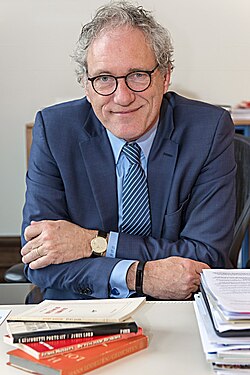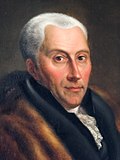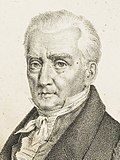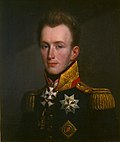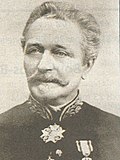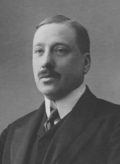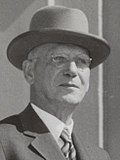| Vice-President of the Council of State of the Netherlands | |
|---|---|
| Vice-President van de Raad van State | |
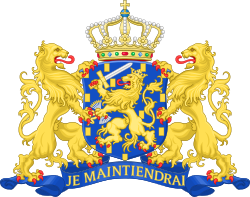 State Coat of arms of the Netherlands | |
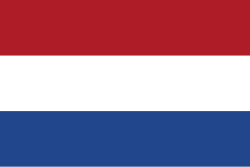 Flag of the Kingdom of the Netherlands | |
| Member of | Council of State |
| Nominator | Minister of the Interior and Kingdom Relations |
| Appointer | Monarch |
| Term length | Life tenure until the age of 70 |
| Formation | 12 April 1814 |
| First holder | Gijsbert Karel van Hogendorp |
| Unofficial names | Viceroy of the Netherlands [1] [2] |
| Website | The Council of State |
| Part of the Politics series |
 |
|---|
| |
The vice-president of the Council of State (Dutch : Vice-President van de Raad van State) is the de facto presiding officer of the Council of State. [3] The monarch serves as the ex officio president of the Council of State but in reality seldom chairs meetings, in his absence, the vice-president serves as pro tempore chair of those meetings. The vice-president is also in charge of the council's organisation and administrative duties. The Constitution of the Netherlands stipulates that if the royal house were to become extinct the vice-president will become the acting head of state. Like the other members of the Council of State the vice president is appointed by the monarch upon nomination by the minister of the interior and kingdom relations. The service of the vice-president is a life tenure appointment but is required by law to enter a mandatory retirement at the age of 70. Alternatively, an early retirement or a forced termination of his tenure can be given by the monarch in a royal decree. [4]
Contents
The current vice-president of the Council of State is Thom de Graaf. [5]
